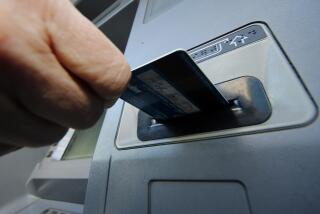Banks Adopt Measures to Fight Money Laundering
ZURICH, Switzerland — Responding to global pressure, 11 major international banks adopted voluntary measures Monday to fight the spread of money laundering and weed out shady customers.
The banks touted their standards as an important new weapon to stop money from criminal activities, such as drug trafficking and prostitution, from entering the banking system and seeming like legitimate proceeds.
The code obliges bankers to make sure they know who is depositing money with them and where it is coming from.
But the banks remained opposed to sharing information on rejected customers and didn’t specify punishments for banks that don’t comply. The code was limited to banking by wealthy customers, not applying to sectors such as insurance and securities industries.
The measures come amid growing international calls for improved oversight of cross-border financial dealings, particularly in some of the world’s tiniest nations and territories, from Dominica to the Marshall Islands.
The 11 banks aren’t the chief offenders. But they hope others will join them, making the voluntary code a global standard. They don’t expect regulators to impose stricter rules for now.
“We think that they represent decent and adequate standards,” said Rainout van Lennep, head of international private banking for ABN-AMRO of the Netherlands.
“We do not expect regulators to raise the bar higher at this point.”
In addition to ABN AMRO, the banks are Switzerland’s UBS and Credit Suisse; Banco Santander of Spain; Citibank, Chase Manhattan and its merger partner J.P. Morgan of the United States; Barclays Bank of Britain; HSBC of Hong Kong; Deutsche Bank of Germany; and Societe Generale of France.
More to Read
Sign up for Essential California
The most important California stories and recommendations in your inbox every morning.
You may occasionally receive promotional content from the Los Angeles Times.








